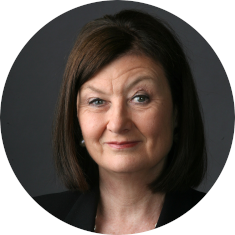Unexpected Sources: A Friend of Journalists and Fraud Examiners Alike
/Fraud examiners might not always think of themselves as journalists, but there might be more overlap than you think. Both professions conduct interviews, they investigate documents, they write up their findings and, if they’re lucky, they can find unexpected breaks in cases or stories thanks to whistleblowers or unexpected sources. In her remarks to attendees at the 2018 ACFE Fraud Conference Asia-Pacific, veteran reporter Kate McClymont stressed the importance of those who come forward to blow the whistle.
She said that investigative journalists, like fraud examiners, often find their answers by following the money. However, journalists can’t get subpoenas or search warrants the way fraud examiners working with law enforcement can. “What still does give us an edge is the whistleblower,” she said. “The enraged, or inspired, insider who wants, for whatever reason often you don’t know, to see certain matters brought to light.”
McClymont, an award-winning investigative reporter for the Sydney Morning Herald, told stories of Clare Rewcastle Brown investigating 1MDB and the International Consortium of Investigative Journalists to highlight the importance of sources providing documents and information to reporters to dig through. She also shared some of her own experiences tracking down information on a number of corrupt politicians, who are now in prison, such as former state minister Eddie Obeid and former trade union official Michael Williamson.
“People often ask me, ‘How does information come to you?’ Well, it comes in weird and wacky ways,” she said. “On one occasion, an envelope arrived at the Herald saying I should arrange for a smiley face to be placed on the Herald’s weather page to indicate if I was interested in receiving details of the secret house purchase that Eddie Obeid was trying to keep under wraps.” McClymont wasn’t able to arrange for that smiley face, but luckily was called by some disgruntled neighbors who gave a lot of information about that house.
That wasn’t the only of McClymont’s breaks to come from a disgruntled stranger. “One of my biggest scoops came from a member of the public who rang up because they were absolutely furious about being outbid at their school charity auction,” she said. “‘You have to start looking at this bloke Michael Williamson,’ said the caller.” She had never heard of him at the time.
The caller said Williamson was the head of the Health Services Union of Australia and his wife didn’t work. “‘How much do union bosses earn?’ he wanted to know. Because this Williamson chap had five kids at private schools, he and his wife drove top of the line Mercedes, they traveled overseas a lot, always first class, and the most galling, as I said, was they outbid fellow parents at the school charity auction,” she said. “It literally took half a day until I realized I was on to something really big.”
McClymont’s career has been rewarding in exposing corruption, but it isn’t always pretty. She said she currently is facing five defamation cases and said she’s received her share of death threats. However, like many fraud examiners, she is determined to continue bringing the truth to light no matter the personal costs. "Investigative journalism is not for the fainthearted,” she said. “I know our job is not to be loved, and our job is to tell the truth and to do so without fear or favor, but sometimes dealing with the fraudsters, fakes and felons does get you down. And when it does, you remind yourself that courageous and well-researched investigative journalism can make a difference in society."



